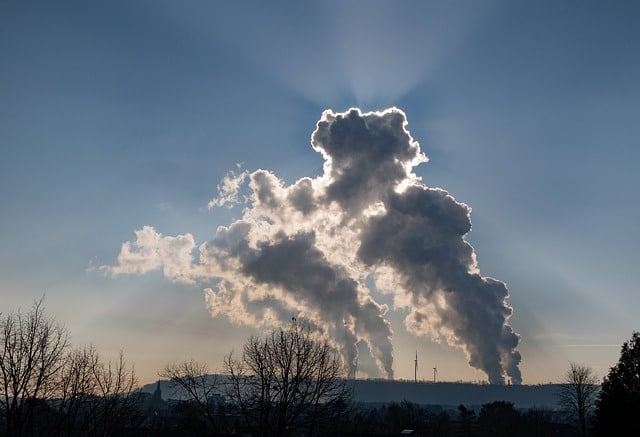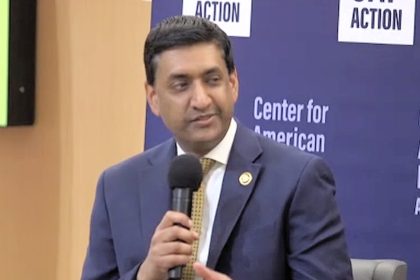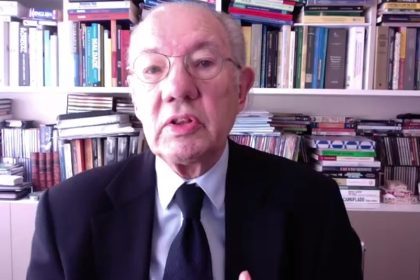Economists Differ on the Social Cost of Carbon

WASHINGTON — How much does it cost the world for each ton of carbon dioxide released into the atmosphere? Exactly how much does it warm the earth, change weather patterns, increase wildfires, disrupt food supplies, make an individual in Africa less productive, or shorten the life of someone in Southeast Asia?
Some economists would tell you this number is impossible to truly calculate. Others might tell you that without at least attempting to calculate the cost it may be impossible to plan for the future.
The number is called the social cost of carbon, and it has become the main measure of economic benefit to mitigate climate change, putting sustainability efforts into economic terms to help decision-makers better understand the implications of emissions.
“The social cost of carbon is an estimate in dollars per ton of CO2,” Brian Prest, director of the Social Cost of Carbon Initiative at Resources for the Future, explained at the Brookings Institution, a D.C.-based research group.
But the actual estimated cost isn’t that easy to calculate — nor will it be easy to get people around the world on board to pay it.
The U.S. government under the Biden administration has been using an interim value of $51 per metric ton of carbon. Previously, the Trump administration had slashed the social cost to between $1 and $7 using a modified methodology. And just last year the Environmental Protection Agency proposed increasing the number to $190 per metric ton.
The number is important because it informs U.S. government investment decisions around the world, serves as a benchmark for carbon taxes, and generally affects policy “on what the future economy and society is going to look like,” according to Prest.
“The social cost of carbon has been this wonky thing that economists love to talk about,” Coral Davenport, New York Times reporter, said, “and I kept waiting for the moment when it would burst through and become really significant … in terms of how it affects policy and people’s real lives. I think that moment is coming.”
Citing the Biden administration’s proposal for stringent new emission standards for cars and trucks, which Davenport said was “designed to essentially end sales of internal combustion engines in our lifetime,” the social cost of carbon has become an “economic justification for powerful rulemaking.”
“The point of it is to give every federal agency a tool to say, ‘this is the economic justification for squeezing out CO2 in every corner of the economy,’” she said.
While cost-benefit analysis has been a required part of federal regulatory analysis since the early 1980s, measuring the cost of the effects of greenhouse gases on climate change is relatively new, coming straight out of a 2007 court decision brought by the Center for Biological Diversity.
Now, the U.S. government attempts to account for the costs and benefits of changes in greenhouse gas emissions by using the social cost of carbon as an estimate, which is calculated in multiple steps using special computerized models.
“The majority of the stuff that’s coming out of these models today, the damages are related to what’s called temperature-mortality,” Noah Kaufman, research scholar at Columbia University’s Center on Global Energy Policy, argued. “It’s an extremely limited way to think about the future impacts of climate change.”
First, models predict future emissions based on population, economic growth and other factors; then future climate responses — such as temperature increase and sea level rise — are calculated and their economic impacts are assessed on agriculture, health, energy use and other aspects of the economy. These impact damages are then converted to present-day value and added up to determine damages.
The resulting number — per ton of CO2 — is the United States’ best estimate of how much polluters should pay for an uncertain projection of economic growth that Kaufman is “not very confident” about using.
“I don’t think we ever really settled on the right way to think about any specific number that comes out of the models. To me, I think of the social cost of carbon as this very useful concept that teachers will rightly continue to teach their students about how to think about climate economics, but policymakers for the most part will rightly focus on a … risk management approach,” he said.
“The most important thing that people should [take] away from [this] is just how freakin’ scary those risks are … but we’re talking about an arcane metric called the social cost of carbon and there are specific numbers being thrown around. It’s equally as important that people really understand the scale of the uncertainty that is involved in coming up with these numbers.”
The social cost of carbon modeling process converts future damages into present-day value by using a discount rate to determine how much weight is placed on impacts that occur in the future. Present-day costs and benefits trump future ones, so a discount rate reflects relative significance.
“What that means, in English, is that you’re going to put less value on outcomes where the world is richer,” Kaufman said. “The way these models are built, climate outcomes are worse when the world is richer.”
“It’s not real. It’s how the model works. Damages come from economic activity. You have less value on richer futures and worse climate damages in richer futures. Put that together and you’re putting less value on futures where climate damage isn’t the worst.”
Furthermore, the numbers represent a monetary value judgment on how impacts are discounted over time and all around the globe, but the policies, like carbon taxes, are scaled to value income-producing quality.
“We’re seeing the reemergence of some kind of carbon price in a carbon tariff,” Davenport said, citing Sen. Sheldon Whitehouse’s, D-R.I., Clean Competition Act, a proposed CO2 import tax on goods based on CO2 emitted, and Sen. Bill Cassidy’s, R-La., proposed legislation to impose a ‘foreign pollution fee,’ or carbon border adjustment mechanism, as examples.
“If Congress moves forward on a carbon tax tariff, the rest of the world will have something to say about it real fast,” Davenport said. “That will essentially be a way of inflicting the U.S. carbon price of goods on the rest of the world. It’s also a good way to start a trade war.”
Additionally, the calculation of the U.S. social cost of carbon values damages — and lives — differently across the world, despite the fact that national borders don’t keep greenhouse gas emissions from entering or exiting.
While it’s true that varying carbon prices in different parts of the world would cause emissions to migrate to where it’s cheapest, it’s also true that there is a huge disparity in individuals’ ability to pay for emissions abroad.
“I think economists do a lot of jiu jitsu to convince themselves that it’s not a moral judgment, but at the end of the day, what it comes down to is what is the willingness of people to pay to avoid the damages,” Kaufman said.
“You can’t lose sight of the question we’re trying to answer here, which is, what is the damage of a poof of carbon dioxide today to the whole world for hundreds and hundreds of years?” he said.
“That requires predicting technological process and economic growth around the world for hundreds of years … and predicting what that means for the world for hundreds of years, and all of these value judgments about how we value future generations and about what kinds of risks are we willing to take, and how much do we care about Southeast Asia impacts versus impacts in the United States.
“I just think we have to keep our expectations in check for how sure we are ever going to be.”
Kate can be reached at [email protected]
























